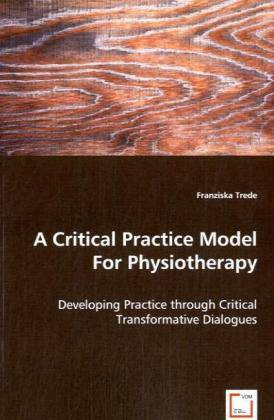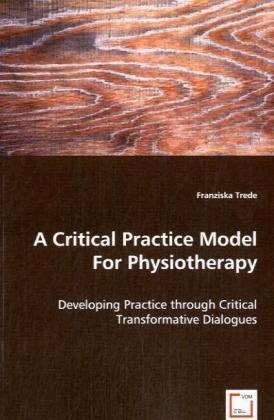
- Afhalen na 1 uur in een winkel met voorraad
- Gratis thuislevering in België vanaf € 30
- Ruim aanbod met 7 miljoen producten
- Afhalen na 1 uur in een winkel met voorraad
- Gratis thuislevering in België vanaf € 30
- Ruim aanbod met 7 miljoen producten
Zoeken
A Critical Practice Model For Physiotherapy - Developing Practice through Critical Transformative Dialogues
Developing Practice through Critical Transformative Dialogues
Franziska Trede
Paperback | Engels
€ 115,95
+ 231 punten
Omschrijving
Clinical practice operates in increasingly more complex, diverse and uncertain environments. Patients are better informed, technology is advancing and health care practice is constantly changing. In the business of clinical reality clinicians normally do not question their professional practice because they take it for granted and have been socialised into accepting current professional practices. Franziska Trede argues that professional practice is enhanced through critical transformative dialogues (CTDs). CTD are based on critical social science philosophy with an emphasis on scepticism and critique of current knowledge and practices, critical self-reflection, and developing professional practice through critical dialogues. There are three key processes of CTD: Knowing self, engaging with others, and emancipating practice from unreflected, taken-for-granted assumptions. Findings from her research include five relevant dimensions of critical social science for health care practice, five different modes of engaging with CTD, and twelve propositions for a critical practice model. This book is of great interest to clinicians, clinical educators and lecturers in health care.
Specificaties
Betrokkenen
- Auteur(s):
- Uitgeverij:
Inhoud
- Aantal bladzijden:
- 320
- Taal:
- Engels
Eigenschappen
- Productcode (EAN):
- 9783639060638
- Verschijningsdatum:
- 29/07/2008
- Uitvoering:
- Paperback
- Formaat:
- Trade paperback (VS)
- Afmetingen:
- 152 mm x 229 mm
- Gewicht:
- 430 g

Alleen bij Standaard Boekhandel
+ 231 punten op je klantenkaart van Standaard Boekhandel
Beoordelingen
We publiceren alleen reviews die voldoen aan de voorwaarden voor reviews. Bekijk onze voorwaarden voor reviews.








